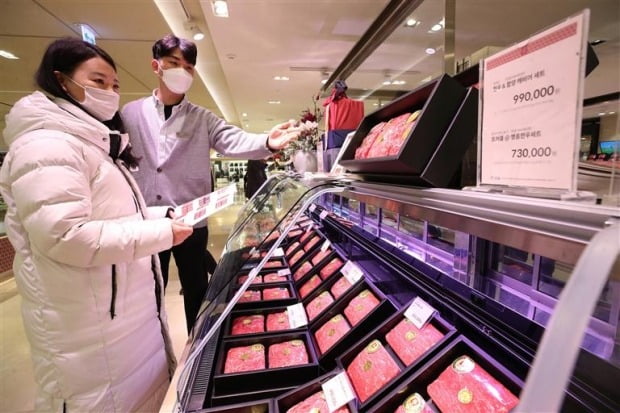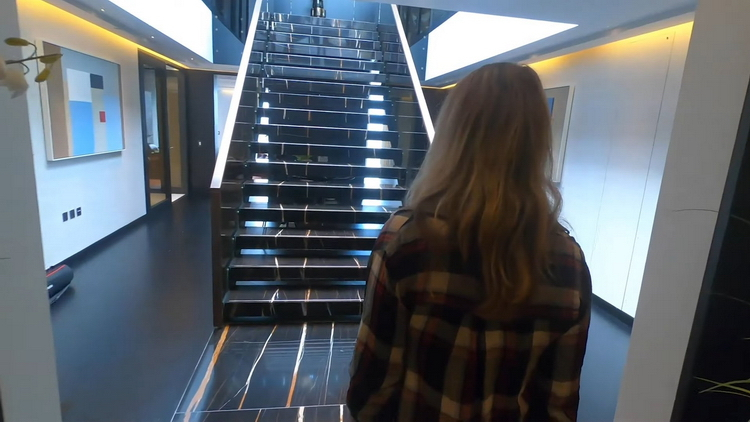–
In celebration of the Lunar New Year, the government decided to increase the limit on the value of gifts under the Solicitation Prohibition Act only for agricultural and livestock products. The purpose is to help farmers and fishermen who are in trouble due to the novel coronavirus infection (Corona 19) and various natural disasters. However, it is also pointed out that inflation may rise further as the price of gift sets has risen amid the recent surge in various food prices.
On the 19th, the National Rights Commission, the Ministry of Food, Agriculture, Forestry and Fisheries, and the Ministry of Oceans and Fisheries announced the’Revision of the Enforcement Decree of the Solicitation Ban Act and the plan to promote consumption of agricultural and fishery products’ at the government office in Seoul. The value of futures for livestock and fisheries during the Lunar New Year holiday has been increased from 100,000 won to 200,000 won, and various event plans have been made to expand consumption.
Through the revision of the enforcement decree, the government decided to allow up to 200,000 won for the New Year gifts purchased from that day to the 14th of the following month. This applies to cases where shipment confirmation is possible through postmarks, etc. within this period. By item, various agricultural and marine products such as Korean beef, fish, fruits, and flowers are targeted. Red ginseng, salted fish, and kimchi processed using more than 50% of agricultural and marine products can benefit from the same.
The Ministry of Agriculture, Food and Rural Affairs and the Ministry of Oceans and Fisheries plan to promote consumption revitalization measures so that this increase in the value of the gift can lead to an increase in the consumption of Korean agricultural and marine products. The Ministry of Agriculture and Food has been holding discount events in hypermarkets and online malls in conjunction with a consumer coupon event that gives up to 30% discount on purchases of agricultural and fishery products from the 15th and the 18th.
The government emphasized that the revision of the enforcement decree is temporary. It is said that this was an inevitable measure as part of the government-wide public welfare countermeasures as socio-economic difficulties accumulated due to intensive’social distancing’ caused by the prolonged Corona 19.
The Ministry of Agriculture and Food explained that the amount of damage to farmers due to various natural disasters this year was 5787.5 billion won, which is four times the annual average damage for the past five years, and that the reduction in consumption of agricultural and fishery food ingredients amounted to 1.9 trillion won due to the damage to the restaurant industry due to Corona 19.
However, from the perspective of consumers, there are concerns that the sale of expensive gift sets may lead to an increase in the price of various ingredients. As the limit on the value of the gift is increased from 100,000 won to 200,000 won, the price of 90,000 won sets is sold for more than 100,000 won. If this happens, it is highly likely that the prices of various agricultural and livestock products purchased in the form of general ingredients rather than a gift set will also increase.
In fact, when the standard for the Kim Young-ran Act on Chuseok was eased from 100,000 won to 200,000 won, the price of Korean beef, a representative gift item, surged. One week before Chuseok last year, the price of Korean beef was 10,3933 won per kilogram of sirloin, up 24% from 8,3771 won one week before Chuseok last year. This is the reason why it is pointed out that the relaxation of the Kim Young-ran Act could accelerate this trend in a situation where the price of the table is soaring due to various factors such as a shortage of rice supply, an increase in meat consumption, and an increase in international grain prices.
Reporter Kang Jin-kyu [email protected]
–
Ⓒ Hankyung.com prohibits unauthorized reproduction and redistribution
–


